Choline
Choline is an essential nutrient present mainly in animal foods like eggs, meat, poultry, and dairy. Choline is the precursor to the neurotransmitter acetylcholine. During pregnancy, choline is crucial for healthy fetal neurodevelopment, and higher choline intakes are associated with better cardiovascular health, cognitive function, and skeletal muscle function.
Choline is most often used for
Last Updated:April 18, 2024
Choline is an essential nutrient that plays a role in the synthesis of phospholipid membranes and is a source of methyl groups that are needed for many steps in metabolism. It’s also the precursor to the neurotransmitter acetylcholine. Choline has particular relevance for brain development, liver health, and skeletal muscle function. Choline is mostly found in animal foods such as eggs, milk, fish, chicken, and beef, but some plant foods also contain choline.[reference|url=https://pubmed.ncbi.nlm.nih.gov/30332744|title=|published=|authors=|journal=|]
Choline supplementation during pregnancy or early childhood has favorable effects on children’s brain function and neurodevelopment including memory, attention, and visual-spatial learning.[reference|url=https://pubmed.ncbi.nlm.nih.gov/36041182|title=|published=|authors=|journal=|] Choline supplementation among children with fetal alcohol spectrum disorder improves memory, nonverbal intelligence, visual-spatial skills, ADHD symptoms, executive function, and white matter microstructure.[reference|url=https://pubmed.ncbi.nlm.nih.gov/26447156|title=|published=|authors=|journal=|][reference|url=https://pubmed.ncbi.nlm.nih.gov/32164522|title=|published=|authors=|journal=|][reference|url=https://pubmed.ncbi.nlm.nih.gov/36526961|title=|published=|authors=|journal=|] These effects occur primarily when choline is supplemented before the age of 5.
Higher choline intakes have been associated with a lower risk for cardiovascular events and stroke, cognitive impairment, post-stroke depression,[reference|url=https://pubmed.ncbi.nlm.nih.gov/34611955|title=|published=|authors=|journal=|] cardiovascular disease,[reference|url=https://pubmed.ncbi.nlm.nih.gov/37764819|title=|published=|authors=|journal=|] and dementia.[reference|url=https://pubmed.ncbi.nlm.nih.gov/31360988|title=|published=|authors=|journal=|] A higher intake of choline is also associated with lower levels of cardiometabolic risk factors.[reference|url=https://pubmed.ncbi.nlm.nih.gov/36124652|title=|published=|authors=|journal=|] Interestingly, a low choline intake may impair gains in strength and lean mass in response to exercise training[reference|url=https://pubmed.ncbi.nlm.nih.gov/37764658|title=The Effect of Choline and Resistance Training on Strength and Lean Mass in Older Adults.|published=2023-Sep-06|authors=Lee CW, Lee TV, Galvan E, Chen VCW, Bui S, Crouse SF, Fluckey JD, Smith SB, Riechman SE|journal=Nutrients|] and reduce cognitive function.[reference|url=https://pubmed.ncbi.nlm.nih.gov/31360988|title=|published=|authors=|journal=|]
High/excessive intakes of choline can result in some side effects, including a fishy body odor, vomiting, excessive sweating and salivation, low blood pressure (hypotension), and liver toxicity.[reference|url=https://ods.od.nih.gov/factsheets/Choline-HealthProfessional/|title=Choline: Fact Sheet for Health Professionals; USA: National Institutes of Health Office of Dietary Supplements; last updated 2 June 2022; cited April 2024|published=2018] In addition, choline consumption has been shown to increase the production of trimethylamine N-oxide (TMAO), which is associated with an increased risk of cardiovascular disease. However, some studies indicate that the amount of choline consumed in 3 eggs per day does not elevate plasma TMAO levels.[reference|url=https://pubmed.ncbi.nlm.nih.gov/29764315|title=Effects of Egg Consumption and Choline Supplementation on Plasma Choline and Trimethylamine-N-Oxide in a Young Population|published=2018 May 15|authors=Lemos BS, Medina-Vera I, Malysheva OV, Caudill MA, Fernandez ML|journal=J Am Coll Nutr|][reference|url=https://pubmed.ncbi.nlm.nih.gov/32464420|title=|published=|authors=|journal=|][reference|url=https://pubmed.ncbi.nlm.nih.gov/29313753|title=Compared to an Oatmeal Breakfast, Two Eggs/Day Increased Plasma Carotenoids and Choline without Increasing Trimethyl Amine N-Oxide Concentrations|published=2018 Feb|authors=Missimer A, Fernandez ML, DiMarco DM, Norris GH, Blesso CN, Murillo AG, Vergara-Jimenez M, Lemos BS, Medina-Vera I, Malysheva OV, Caudill MA|journal=J Am Coll Nutr|][reference|url=https://pubmed.ncbi.nlm.nih.gov/28091798|title=Intake of up to 3 Eggs/Day Increases HDL Cholesterol and Plasma Choline While Plasma Trimethylamine-N-oxide is Unchanged in a Healthy Population|published=2017 Mar|authors=DiMarco DM, Missimer A, Murillo AG, Lemos BS, Malysheva OV, Caudill MA, Blesso CN, Fernandez ML|journal=Lipids|][reference|url=https://pubmed.ncbi.nlm.nih.gov/35334836|title=|published=|authors=|journal=|] Some studies have associated higher choline intakes with increased atrial fibrillation risk[reference|url=https://pubmed.ncbi.nlm.nih.gov/29650710|title=|published=|authors=|journal=|] and type 2 diabetes.[reference|url=https://pubmed.ncbi.nlm.nih.gov/37816243|title=|published=|authors=|journal=|]
Dietary choline is a precursor for the neurotransmitter acetylcholine (ACh), which is crucial for normal cognitive and motor function. Choline is irreversibly oxidized into betaine in the liver and kidneys. Betaine is a methyl group donor that participates in the important process of remethylating homocysteine to methionine. Choline is also a precursor for the synthesis of phosphatidylcholine, the most abundant form of phospholipid in the body.[reference|url=https://pubmed.ncbi.nlm.nih.gov/30332744|title=|published=|authors=|journal=|]
Choline is important for neural tube closure, stem cell proliferation, and apoptosis (programmed cell death) in the fetal brain during early pregnancy. The choline metabolite phosphatidylcholine is also required for packaging and exporting very-low-density lipoproteins from the liver and the secretion of bile acid salts; the disruption of this process can contribute to the accumulation of triglycerides in the liver.
- Trimethylethanolamine
- Choline Bitartrate
- DMAE
- Lecithin
The adequate intake (AI) for choline is 550 mg per day for men and 425 mg per day for women. The AI for choline increases during pregnancy (450 mg per day) and lactation (550 mg per day).
The tolerable upper intake level (UL) for choline from food and supplements is 3,500 mg per day for men and women. The UL is 1,000 mg per day for children 1–8 years old, 2,000 mg per day for children 9–13, and 3,000 mg per day for children 14–18 years old.[1]
- Training Volume - Spector SA, Jackman MR, Sabounjian LA, Sakkas C, Landers DM, Willis WTEffect of choline supplementation on fatigue in trained cyclistsMed Sci Sports Exerc.(1995 May)
- Cognition - Deuster PA, Singh A, Coll R, Hyde DE, Becker WJCholine ingestion does not modify physical or cognitive performanceMil Med.(2002 Dec)
- Rate of Perceived Exertion - Warber JP, Patton JF, Tharion WJ, Zeisel SH, Mello RP, Kemnitz CP, Lieberman HRThe effects of choline supplementation on physical performanceInt J Sport Nutr Exerc Metab.(2000 Jun)









